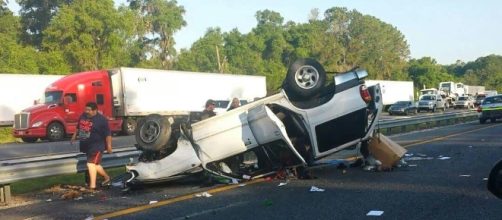After 20 years of decline in fatal car crashes in Florida, the number has risen sharply and drastically. The Florida Highway Patrol and police officers in all 20 of 67 Florida counties are bringing back a program that started in the 1970's that could help reduce the number of accidents that happen on major highways and roads within Florida.
Old programs
The Arrive Alive program was made in the 1970s in Florida to make roads safer due to the number of accidents that happened. It was a crash-reduction effort program that over the course of the decades merged with other programs in the 1990's to tackle drinking or distracted driving.
The Arrive Alive program that is being brought back now has a target mission on identifying the areas of major highways and state roads that have the highest number of fatalities. Many of the areas are familiar for motorists in the Tampa and Saint Pete area. Some of the roads in question are stretches of state roads 19 in Saint Pete and 60 in Brandon, areas of I-275 between Tampa and Saint Pete, and parts of I-4 and I-75 in Hillsborough and Polk county.
Number crunching
Since 2014, data analysts for Florida saw a jump in accidents that were fatal reach a total of 2,339. Just last year the number doubled to nearly 2,800 fatal accidents within Florida. In Tampa alone, the number of accidents back in 2014 reached only 332 fatal deaths.
But Tampa in 2016 saw a huge increase in the number of accidents being fatal to 413. But, by comparing the 2011 to 2014 accident fatalities within Florida, the numbers have increased steadily, but not as drastically as from 2014 to 2016.
"There are likely several reasons for the rise," said Maj. Joseph Franza to the Tampa Bay Times, "There are more cars on the road because the economy has improved, Florida's population is growing, gas is cheaper, and the number of visitors is increasing.
And many of the drivers behind the wheel refuse to leave their cellphones alone, continuing to find other ways to distract themselves from the road.
Local police officers will coordinate with the highway patrol in policing trouble spots and sharing their information between state patrol officers and local officers in an online database.

